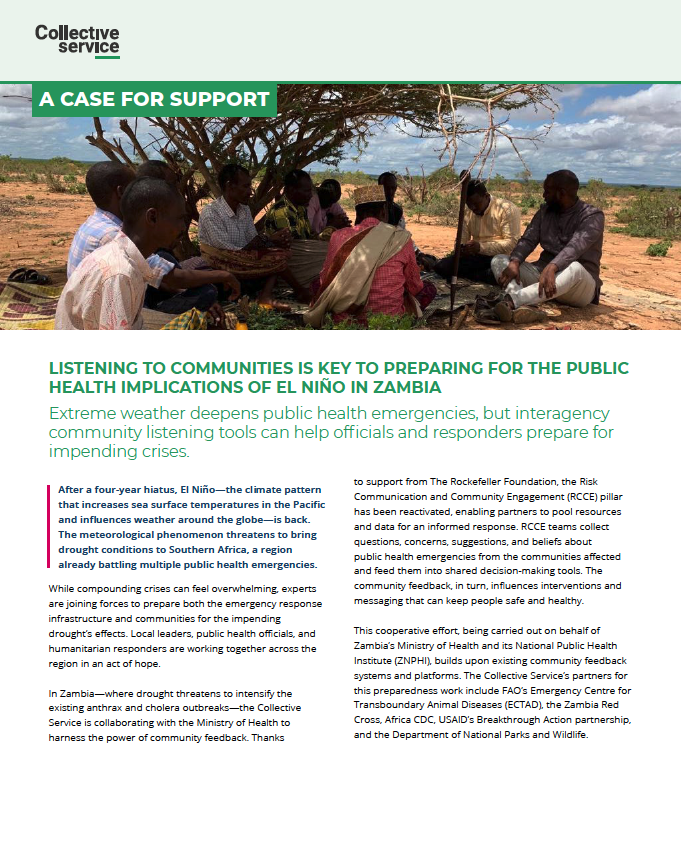LISTENING TO COMMUNITIES IS KEY TO PREPARING FOR THE PUBLIC HEALTH IMPLICATIONS OF EL NIÑO IN ZAMBIA
Description
Extreme weather deepens public health emergencies, but interagency community listening tools can help officials and responders prepare for impending crises.
In Zambia—where drought threatens to intensify the existing anthrax and cholera outbreaks—the Collective Service is collaborating with the Ministry of Health to harness the power of community feedback.
Thanks to support from The Rockefeller Foundation, the Risk Communication and Community Engagement (RCCE) pillar has been reactivated, enabling partners to pool resources and data for an informed response. RCCE teams collect questions, concerns, suggestions, and beliefs about public health emergencies from the communities affected and feed them into shared decision-making tools. The community feedback, in turn, influences interventions and messaging that can keep people safe and healthy.
This cooperative effort, being carried out on behalf of Zambia’s Ministry of Health and its National Public Health Institute (ZNPHI), builds upon existing community feedback systems and platforms. The Collective Service’s partners for this preparedness work include FAO’s Emergency Centre for Transboundary Animal Diseases (ECTAD), the Zambia Red Cross, Africa CDC, USAID’s Breakthrough Action partnership, and the Department of National Parks and Wildlife.
Additional languages

DETAILS
Organisation
Emergency
Region
Keywords
